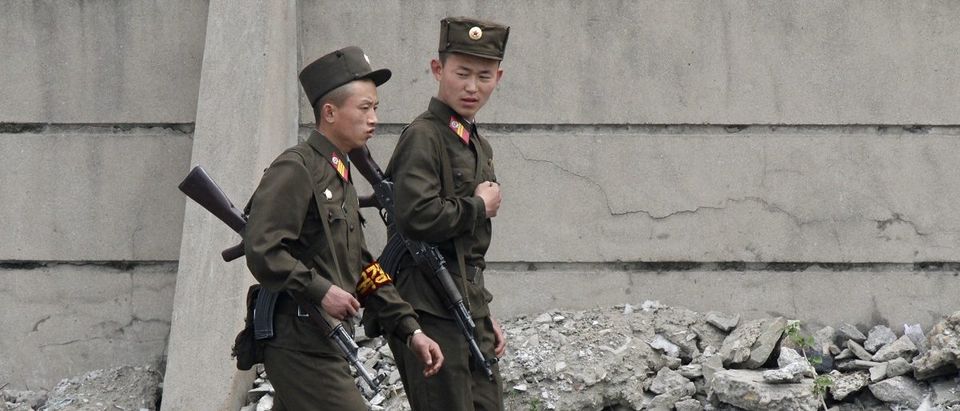An American college student arrested in North Korea has arrived home after being released by the reclusive regime, but the young man is in a coma.
Otto Frederick Warmbier, a University of Virginia undergraduate, was arrested last January while visiting North Korea as a tourist. He disappeared after a tearful public trial in March of last year. Warmbier arrived home in Cincinnati Tuesday following a medical evacuation. He is in very “bad shape” after the Department of State secured his relief.
Warmbier, who was detained for allegedly stealing a political propaganda poster and sentenced to 15 years of hard labor, is in a coma and has been for over a year.

Otto Frederick Warmbier (C) is taken to North Korea’s top court in Pyongyang, North Korea, in this photo released by Kyodo March 16, 2016. REUTERS/Kyodo
The explanation for his coma is that he developed a case of food poisoning shortly after his trial. North Korean medical personnel gave him a sleeping pill. Warmbier never woke up.
This explanation is somewhat suspicious. Debra Babcock, director of the cognition program at the National Institute of Neurological Disorders and Stroke, told The Washington Post that botulism is “highly unlikely” because the toxin released by the bacteria does not usually cross the blood-brain barrier. She did, however, say that an overdose of sleeping medication could theoretically result in a coma. The most common cause of a coma in the U.S. is traumatic brain injury, she explained.
The U.S. recently obtained intelligence reports suggesting that North Korean authorities brutally beat Warmbier while in custody, a senior American official told The New York Times. There were actually serious concerns that the young student was dead. Some American officials suspect that Warmbier’s current condition is the result of his treatment.
North Korea claims that they were holding him as a “prisoner of war.” Pyongyang warned in May that it reserves the right “ruthlessly punish the criminals and thus reliably defend its state.”
“We want the world to know how we and our son have been brutalized and terrorized by the pariah regime in North Korean,” Warmbier’s parents said in a statement.
Expert observers are not optimistic about Warmbier’s chances for a full recovery. “I would put it in the category of being extremely unlikely,” Ariane Lewis, an assistant professor of neurology and neurosurgery at New York University’s Langone School of Medicine, told The Washington Post, “I wouldn’t say it’s impossible. After protracted periods of time of being unarousable, that moves it further and further away from being possible.”
There are experimental drugs for traumatic brain injuries that could potentially produce positive results.
Send tips to ryan@
All content created by the Daily Caller News Foundation, an independent and nonpartisan newswire service, is available without charge to any legitimate news publisher that can provide a large audience. All republished articles must include our logo, our reporter’s byline and their DCNF affiliation. For any questions about our guidelines or partnering with us, please contact licensing@dailycallernewsfoundation.org.












